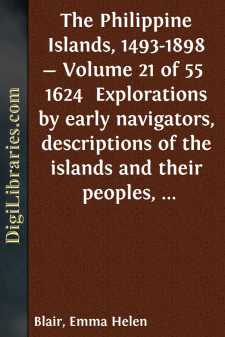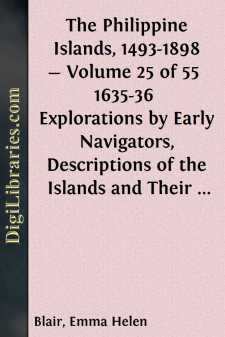Categories
- Antiques & Collectibles 13
- Architecture 36
- Art 48
- Bibles 22
- Biography & Autobiography 813
- Body, Mind & Spirit 141
- Business & Economics 28
- Children's Books 12
- Children's Fiction 9
- Computers 4
- Cooking 94
- Crafts & Hobbies 4
- Drama 346
- Education 46
- Family & Relationships 57
- Fiction 11825
- Games 19
- Gardening 17
- Health & Fitness 34
- History 1377
- House & Home 1
- Humor 147
- Juvenile Fiction 1873
- Juvenile Nonfiction 202
- Language Arts & Disciplines 88
- Law 16
- Literary Collections 686
- Literary Criticism 179
- Mathematics 13
- Medical 41
- Music 40
- Nature 179
- Non-Classifiable 1768
- Performing Arts 7
- Periodicals 1453
- Philosophy 64
- Photography 2
- Poetry 896
- Political Science 203
- Psychology 42
- Reference 154
- Religion 513
- Science 126
- Self-Help 83
- Social Science 81
- Sports & Recreation 34
- Study Aids 3
- Technology & Engineering 59
- Transportation 23
- Travel 463
- True Crime 29
Sort by:
by:
Emma Helen Blair
Ecclesiastical Affairs of the Philippines Royal Instructions to Gomez Perez Dasmariñas Regarding Ecclesiastical Affairs The King. To Gomez Perez Dasmariñas, my governor and captain-general of the Philipinas Islands, or the person or persons in charge of their government: I ordered a decree of various articles to be given to my viceroy of Nueva España, in regard to what was to be done and observed in...
more...
by:
Emma Helen Blair
Report of the Spanish Council of State on Appointment of a Governor for the Philippines Sire: On the occasion of a letter written to your Majesty by Don Alonso Fajardo de Tenzá, governor and captain-general of the Filipinas Islands, and president of the royal Audiencia established therein, on the seventeenth of August of the past year 623, petitioning among other things for permission to come to...
more...
by:
Emma Helen Blair
Chapter I [Medina’s narrative opens with the expedition of Legazpi, and the part played therein by the Augustinian Andrés de Urdaneta and his companions. Felipe II, having determined upon an expedition to the western islands, “entrusted the matter to the viceroy of Nueva España, at that time Don Luis de Velasco, a man of so great worth in all matters, that he has never received adequate praise....
more...
by:
Emma Helen Blair
Chapter XXX Of the first election of our father Fray Lorenzo de León With the fourth of May, 1596, all the capitular religious of this province of SantÐÑsimo Nombre de Jesús of Filipinas assembled, and without much debate cast their votes for father Fray Lorenzo de León,a native of the city of Granada, and son of the house at Méjico, whose learning, ability to preach, and other good...
more...
by:
Emma Helen Blair
Preface The scope of the present volume (1635–36) is mainly commercial and financial matters on the one hand, and ecclesiastical affairs on the other. The paternalistic tendencies of the Spanish government are obvious in the former direction, with various restrictions on trade, and annoying imposts on all classes of people. The Portuguese of Macao are accused of ruining the Chinese trade with the...
more...






